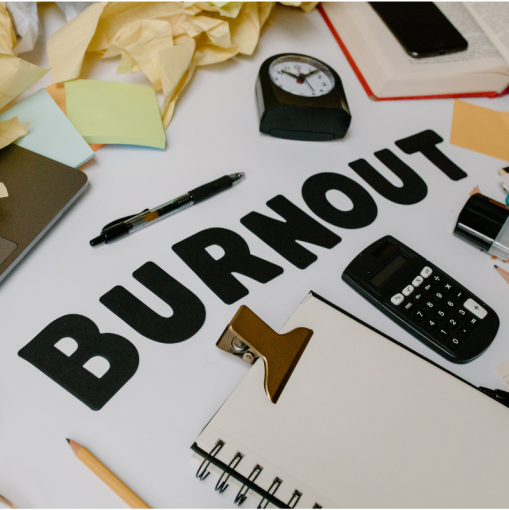The Stages Of Burnout
Burnout is an all too common condition for Professionals. It is a form of physical or mental exhaustion associated with long-term stress that can manifest in both the workplace and personal life. While it may seem like burnout occurs abruptly, there are usually early signs indicating its onset – if you know what to look out for. In this blog post, we’ll be exploring the different stages of burnout so that you can understand when it’s time to take a break from your demanding lifestyle before reaching complete exhaustion.
Definition of Burnout – What is it and what are the Signs & Symptoms
Burnout is a state of emotional, physical, and mental exhaustion caused by prolonged and excessive stress. It often affects individuals who work under stressful conditions, such as healthcare professionals, teachers, and social workers. Burnout can manifest in different ways, and the signs and symptoms may vary from person to person. Some common signs of burnout include feeling constantly drained, experiencing a lack of motivation, and having difficulty concentrating. In addition, people who are experiencing burnout may feel irritable, anxious, or depressed. Physical symptoms can also manifest, such as muscle tension, headaches, and sleep disturbances. It is important to be aware of these signs and symptoms and seek help if you or someone you know may be suffering from burnout.
The Four Stages of Burnout – Exhaustion, Inefficiency, Cynicism and Apathy
Burnout can affect anyone, regardless of their occupation. It is a state of physical, emotional, and mental exhaustion caused by long-term stress. There are four stages of burnout: exhaustion, inefficiency, cynicism, and apathy. The first stage is exhaustion, where individuals feel physically and emotionally drained from their work. They may start to experience symptoms such as headaches, sleeplessness, and lack of energy. In the inefficiency stage, individuals start to become less productive and make more mistakes. Cynicism is the third stage, where individuals develop a negative attitude towards their work and colleagues. And finally, in the apathy stage, individuals feel a sense of detachment and lack of motivation towards their work. It is essential to recognize and address the early warning signs of burnout to prevent it from progressing to its later stages.
Causes of Burnout – Overwork, Stress, Lack of Control & Autonomy
Burnout is a complex phenomenon that can have a significant impact on one’s mental and physical well-being. Among the main factors that contribute to burnout are overwork, stress, lack of control, and autonomy. Overworking oneself can result in an individual feeling exhausted and drained, leaving them susceptible to burnout. Similarly, chronic stress can also lead to burnout by triggering a constant state of tension and anxiety. A lack of control over one’s work environment or autonomy in decision-making can also contribute to burnout by fostering a sense of powerlessness. By understanding the causes of burnout, individuals can take steps to address these factors and prevent burnout from taking hold.
How To Prevent Burnout – Practicing Self Care, Setting Boundaries & Prioritizing Tasks
In today’s fast-paced world, it’s common to feel overwhelmed and burnt out. But it’s important to take care of yourself to avoid burning out completely. Practicing self-care, setting healthy boundaries, and prioritizing tasks are all great ways to prevent burnout. Self-care can be as simple as taking a break or engaging in a leisure activity you enjoy. Setting boundaries can mean saying no to tasks that do not align with your priorities or are beyond your capacity. Prioritizing tasks is crucial in managing time and avoiding overload. By taking these steps regularly, you can prevent burnout and maintain a healthy work-life balance.
Managing Burnout Once It’s Occurred – Taking Breaks, Identifying Negative Thought Patterns & Seeking Help from Professionals
Burnout can be a tough condition to deal with, especially after it’s already happened. Fortunately, there are several steps you can take to help manage it. One of the most important things you can do is take regular breaks to recharge and prevent burnout from happening in the first place. Additionally, identifying negative thought patterns and uprooting them before they take hold can be beneficial. Finally, seeking help from a professional, such as a therapist or counselor can provide valuable insight and support during a difficult time. While managing burnout may seem overwhelming at first, taking these steps can help you regain control and find a way forward.
Long-Term Effects Of Burnout – Mental & Physical Health Decline, Depression & Anxiety Disorders
Burnout is a condition that can have severe long-term effects on an individual’s mental and physical health. Prolonged exposure to stress and exhaustion at work can lead to a decline in cognitive function, memory loss, and even depression and anxiety disorders. The physical effects of burnout can include high blood pressure, heart disease, and weakened immune systems. Unfortunately, the impact of burnout can extend beyond the individual and affect their work productivity and interpersonal relationships. It is important to recognize the symptoms of burnout and take proactive steps towards prevention and treatment to maintain overall well-being.
In conclusion, burnout is the result of continual stress and lack of control or autonomy. While it is not a diagnosable medical condition, its effects can be long-lasting and severely impact one’s mental and physical health. It is important to practice self care, set boundaries and prioritize tasks in order to avoid burnout occurring in the first place. On the other hand, if you find yourself stressed, exhausted and apathetic, there are ways to manage burnout through taking breaks, identifying negative thought patterns and seeking help from professionals. Ultimately, it is key to recognize burnout for what it is: an involuntary reaction to stress that can lead to numerous adverse impacts on one’s wellbeing if not appropriately addressed. If you feel as if you may be experiencing burnout symptoms, take action now by focusing on your well-being with respect to the approaches mentioned previously. Health should always come first!





